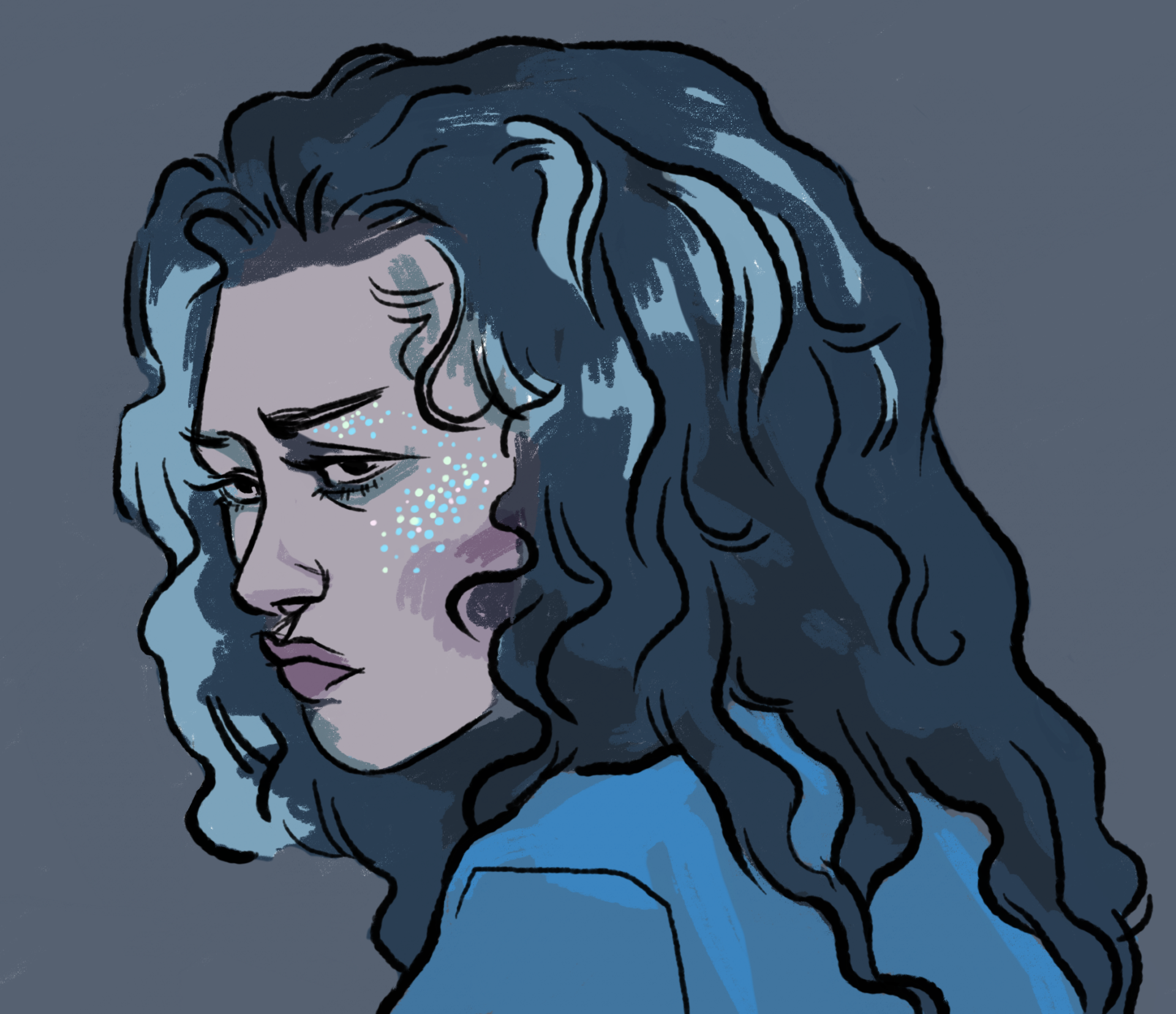
Mental illness is a time suck. You may spend hours immobile, sleep away the day and hyper-focus on small tasks. “Euphoria” is the only TV show I have seen depict this in an accurate manner.
Showing mental illness on TV has become more common, and since suicide is the second leading cause of death for 15-year-olds to 24-year-olds, according to the Center for Disease Control and Prevention (CDC), the stakes have never been higher in accurately portraying it. According to a 2018 study by Kalpana Srivastava, Suprakash Chaudhury and Swaleha Mujawar, media is a primary source of information about mental illness and heavily influences the stigma concerning mental illness as a whole.
“Euphoria” breaks formulaic narratives seen in shows like Netflix’s “13 Reasons Why” by making bipolar disorder seem unglamorous, nonviolent and worth living through. Sam Levinson, the creator, based the depiction on personal experience.
“I was a drug addict for many years, and I had a lot of anxiety and struggled with depression,” Levinson said in an interview with Page Six. “What I really wanted to get at the core of is the pain and the shame.”
Much like Levinson, the main character Rue Bennett, played by Zendaya, is a recovering drug addict who struggles with mental illness. Unlike him, 17-year-old Bennett connects with a Gen-Z audience and contrasts the suicide story of Hannah Baker in “13 Reasons Why.”
The National Alliance on Mental Illness refers to the first season of “13 Reasons Why” as a “suicide revenge fantasy” that falsely portrays suicide as a form of vindication.
“Mental health and mental illness aren’t discussed at all (in ‘13 Reasons Why’),” NAMI Communications Coordinator Laura Greenstein wrote on their website. “This is a major failure of the show as 90% of those who die by suicide have an underlying mental illness and suicide is very often preventable if a person receives the appropriate care.”
I have never watched “13 Reasons Why” before because I know how dangerous it would be. My abilities to cope with my mental illness symptoms have increased significantly, but the irresponsibly graphic nature of the show means it does more harm than good.
Deborah Serani, Psy.D. wrote in an article that depressed people lack the impulse control and functional ability during crises to plan something as elaborate as Hannah Baker’s 13 tapes. More accurately, during a depressive episode, Bennett in “Euphoria” watches 22 hours straight of “Love Island” without peeing, resulting in a urinary tract infection (UTI). While Bennett mustered up the strength to get up and urinate, she discussed the uncontrollable nature of depression.
“The absolute worst part of depression is that even though you know you’re depressed, you’re unable to stop yourself from getting worse,” Bennett said in the show. “You find yourself trying to remember the things that made you happy, but slowly, your brain begins to erase every memory that ever brought you joy. Eventually, all you can think about is how life has always been this way, and will only continue to be this way.”
While I have never had a UTI, I have been in the same place as Bennett, desperately trying to beat depression long enough to pee. A few times, the only way I have been able to get up is with motivational text messages from my best friend Emily.
The episode “The Trials and Tribulations of Trying to Pee While Depressed” ends with Bennett seeking help from her mother and going back on antidepressants, showing the hope absent in shows like “13 Reasons Why.” Hannah Baker has no chance of improving her life, because of her suicide, but Bennett still has the ability to find happiness and functionality amongst the struggles she has.
This is why “Euphoria” has such a powerful effect — it reflects the reality of mental illness. Recovery is not a straight path, there are ups and downs and relapses. The more people see what recovery and coping with mental illness actually looks like, the more mentally ill people will be able to make mistakes and allow that to be a part of our journey.
Subscribe to the Mossy Log Newsletter
Stay up to date with the goings-on at Lewis & Clark! Get the top stories or your favorite section delivered to your inbox whenever we release a new issue.

Leave a Reply